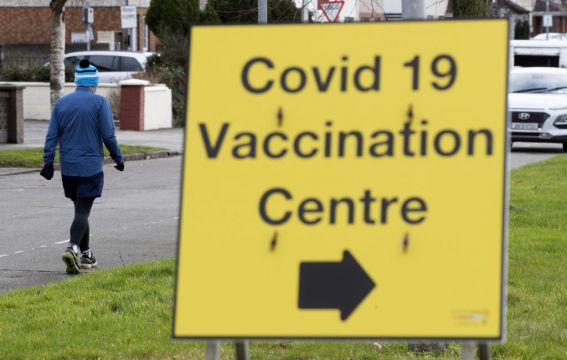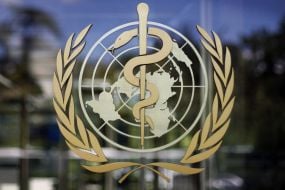As Covid vaccination ramps up across the world and people continue to look to how life may start to return to normality, the question of vaccine passports has become a consistent theme.
Allowing international travel to resume significantly would be the first goal of a vaccine passport, or certificate, while others have questioned whether they could be used for concerts, sporting events and even work.
Greece has already started allocating digital vaccine certificates while Israel is in the process of doing so, although they have faced some technology issues.
While the benefits of a vaccine passport are obvious, questions have been raised over whether it would infringe on civil liberties and personal rights.
MEPs Deirdre Clune and Billy Kelleher, UCC Professor of epidemiology and public health Ivan Perry, and Áine Hartigan and David Hackett of Eugene F Collins law firm spoke to BreakingNews.ie about the pros and cons of vaccine passports.
Mr Kelleher, of Fianna Fáil, and Ms Clune, Fine Gael, both felt an EU-wide vaccine passport or cert would be important, even though some countries have already started the process.
European Union
“If we are to open up, not just in the context of Ireland but the European Union itself, you have migrant workers, people moving around as economies unwind and the principal of being able to prove you have a vaccine both from the point of view of travel, seeking employment, otherwise people would be consistently required to have testing done so overall I think on balance while we are in this pandemic, while we are rolling out vaccines, it would be an improvement to have it and to have it interoperable across countries within the European Union and even further afield,” Mr Kelleher said.
While talks about a European certificate have already been raised in the European Parliament, there are concerns about challenges to any such measure.
Ms Clune feels the overall public health should take precedence over any such challenges.
“People have been raising questions about civil liberties, but I think public health outweighs those questions. Public health is more important, there needs to be clarity on it,” she said.
Mr Kelleher pointed out that a vaccine passport or certificate would not be mandatory in any way, meaning individuals would still have free choice.
I don’t think it would infringe on rights. Some people have raised concerns that it will force people to take vaccines, it won’t.
“I don’t think it would infringe on rights. Some people have raised concerns that it will force people to take vaccines, it won’t,” he said.
“It’s just that some countries, some airlines and potentially even some companies might be saying ‘well look if you want to travel in a country, on our airline, or use our facilities, you may have to have the vaccination’. So how do you prove that? That’s the issue.
“If people decide they don’t want the vaccine, that’s their own decision and there will be consequences of that as well. It won’t make vaccination mandatory, it will just identify who has received the vaccine.”
Prof Perry said that vaccine passports would be a positive but that we may be getting ahead of ourselves by looking at them as an imminent tool for returning to some sort of normality.
He pointed out that data over whether vaccines halt the transmissibility of the virus would first be needed.
Transmission
“It’s clear that the vaccines are effective in reducing the risk of severe illness, and it’s likely that they have some effect in terms of reducing transmission but that would have to be factored in because obviously if you are still capable of transmitting the virus while vaccinated that would dilute the effect.
“It’s a question of how long immunity lasts, whether it reduces transmission and also the issue of the variants and whether the vaccines are going to be adequately protective against current and new variants.
“I’m not saying they are all major issues, but they are reasons why you would be a little cautious about drawing up detailed plans for a vaccine passport.
“With vaccine passports, effectiveness in reducing transmission is a key factor.”
Vaccine nationalism
Prof Perry also expressed concerns about vaccine nationalism, adding that it would be pointless to rush them in before a decent level of inoculation in poorer countries had been achieved.
“A more fundamental concern I’d have about the whole idea is a possibility that if we go down the road of vaccine passports it could lead to vaccine nationalism.
“Nobody is safe until we are all safe, the priority has to be getting the vaccine out to as many people as possible not only in wealthy countries but as many countries as possible.
“If we have everybody vaccinated in the West, and a raging pandemic in poor countries then we are leaving ourselves at a high risk of new variants emerging.
“While there are civil liberties issues, the first set are scientific and the second set are in terms of global ethics, do we want to be travelling around the western world with our vaccine passports while half the world is still unprotected?”
Ms Clune also argued that vaccine passports should only be used when the majority of people had been offered a vaccine, otherwise she feels discrimination issues will come into play.
“From a public heath point of view I support it, but I would be conscious about discrimination.
“When we’re at a point where everybody who can have it has been offered a vaccine, that they can avail of it, and then it should be clear if they do choose to refuse it, it may restrict your ability to travel or to access certain things.”
All the interviewees pointed to the fact that vaccines being required for travel to certain countries was nothing new, as a yellow fever vaccine has been mandatory for travel to certain African countries for years.
Ms Hartigan, who is Immigration Consultant at Eugene F Collins, said: “Some EU nations are calling for an EU Certification System to be introduced so there is some appetite for an EU wide approach to this issue. Other counties have long-standing entry requirements in relation to vaccinations (such as a yellow fever vaccine is a requirement for entry to many African countries) so globally this is not a new issue — what is new is the idea of a digital passport and all the data privacy challenges and personal freedom issues this raises.”
David Hackett — Head of IP, IT & Data Protection at Eugene F Collins — said that special pandemic exemptions could be brought in on a temporary basis, specific legislation would be required to operate vaccine passports in the long term.
GDPR
Mr Hackett said: “While existing legislation, such as GDPR and the Data Protection Act 2018, contain exemptions from the application of certain provisions in particular exceptional circumstances like a pandemic, the long term operation of such a scheme would require specific laws.”
While vaccine passports will offer more security and certainty in travel, Prof Perry pointed out that the vaccine will not necessarily work as effectively with everyone.
From a public health point of view, he feels the priority should still be vaccinating as many people as possible.
“The other thing to bear in mind with vaccine passports is the vaccine won’t work equally well in everybody, there are people who are immuno-compromised and so on. They are still potentially going to be at risk.
“To protect people for whom the vaccine doesn’t work or people who won’t take the vaccine, that will be a segment of the population as well, is to get the overall coverage as high as possible and the other public health measures that we’ve been talking about including quarantine and building up public health teams to manage local outbreaks.”
He also stressed that any talk of mandatory vaccination should be avoided, with a policy of education and encouragement preferable.
“Obviously there are civil liberties issues, in public health in general we are wary about mandatory vaccination, making them compulsory for children in schools and so on.
“Some countries have that but most public health officials are against it, you’re much better off trying to bring people with you and to persuade them on the science and on the basis of altruism, we should keep any element of compulsion to the minimum in public health.”
So where are we in terms of legality surrounding vaccine passports?
Immigration
Ms Hartigan pointed out that the Immigration Act, 2004, already allows for immigration officers to refuse entry to people in relation to certain diseases, and that this could be amended with a Statutory Instrument (SI) to include Covid-19.
“From an inbound perspective, the Immigration Act 2004 makes provision for an immigration officer refusing permission to land on the basis that an individual suffers from a disease which is subject to the international health regulations for the time being adopted by the World Health Assembly of the World Health Organisation. Covid-19 is subject to the international health regulations. Arguably, providing proof of vaccination would be the most efficient means for an immigration officer to make this assessment. Potentially, an SI could amend the schedule of conditions within the Act to specify Covid-19 in particular.”
Mr Hackett said that a biometric identifier (passport) would be a safer legal option than a centralised database.

However, he feels this would still result in some legal challenges.
“Vaccine passports do offer the possibility of easing some of the current restrictions that we face and such schemes should be considered as a way of reopening societies and economies. Some of the risk associated with such schemes can be lessened through proper design of the scheme — a biometric identifier attached to an individual certifying that they have had the vaccine, as opposed to a centralised database of medical information. Notwithstanding this, I would anticipate that the introduction of such a scheme may face a legal challenge from certain parties.”







